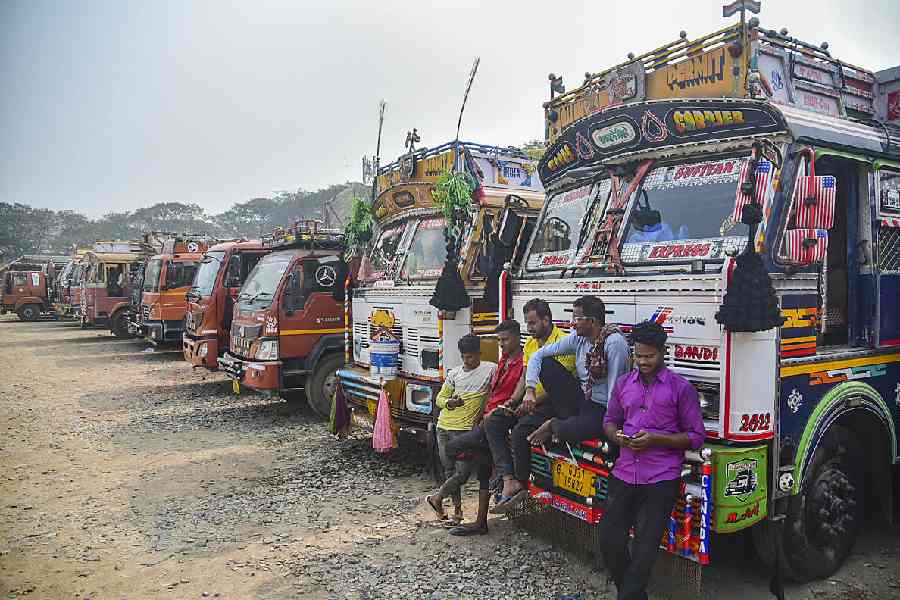Truckers called off their three-day nationwide strike on Tuesday after late-night confabulations with home ministry officials, signalling the end of a snowballing crisis that threatened to disrupt critical supplies of fuel, goods and commodities.
The truckers were protesting against a new law that prescribes punishment of up to 10 years’ imprisonment or a maximum penalty of Rs 7 lakh for those who run away without informing authorities after causing serious road accidents.
Home secretary Ajay Bhalla assured the truckers that they would be consulted before the new law is implemented. Bhalla said: “We had a discussion with All India Motor Transport Congress (AIMTC) representatives. The government wants to say that the new rule has not been implemented. Before implementing Bharatiya Nyaya Sanhita, we will have a discussion with the AIMTC and then only we will take a decision.”
Amrit Lal Madan, president of the AIMTC, said: “Union home minister Amit Shah has kept the 10 years of imprisonment and fine that was imposed, on hold. Until the next meeting of the AIMTC is held no law will be imposed.”
The government held talks with the office bearers of the AIMTC as the stir threatened to impact the supply of essentials while panic buying of fuel in several places resulted in pumps running dry.
The chairman of AIMTC core committee Bal Malkit Singh said the situation is critical. “There is a spontaneous reaction in the country to the hit-and-run law. We’ve never seen such kind of a protest...Drivers are burning their licenses and papers. The situation is very serious.”
Impact
The strike has impacted the movement of fuel and other essential goods including fruits and vegetables, which would further add to the inflationary pressure on the economy, analysts said.
While several mandis reported a fewer number of trucks arriving with fruits and vegetables, long queue could be seen at fuel pump stations. There have been reports of milk supplies getting impacted including in some part of the capital.
The Congress, meanwhile, came out in support of the truckers, saying the misuse of the legislation can lead to an “extortionist network” and “organised corruption”.
Congress leader Rahul Gandhi posted on X, formerly Twitter, that “the insistence on making laws without discussion with the affected class and without dialogue with the Opposition is a continuous attack on the soul of democracy.”
On the second day of the strike, fuel pumps at many places in Himachal Pradesh turned away motorists, saying they had run out of stock as petrol and diesel were not being transported, while the Chandigarh administration ordered rationing of fuel to two- and four-wheelers.
There were massive queues at fuel stations across Punjab and Jammu and Kashmir as the strike hit supplies and people went on a panic-buying spree. People rushed to petrol pumps in large numbers in some parts of Haryana. Private bus operators and some auto-rickshaw unions joined the protest.
Bengal trend
Disruptions were observed in Durgapur, Malda and Haldia depot of Indian Oil Corporation while loading petrol and diesel.
However, the operation at Mourigram, which supplies the motor fuel to Calcutta and adjoining areas, did not face any issue. Petro dealers are keeping a close tab on the situation and bracing for possible disruption. With inputs from Calcutta Bureau











